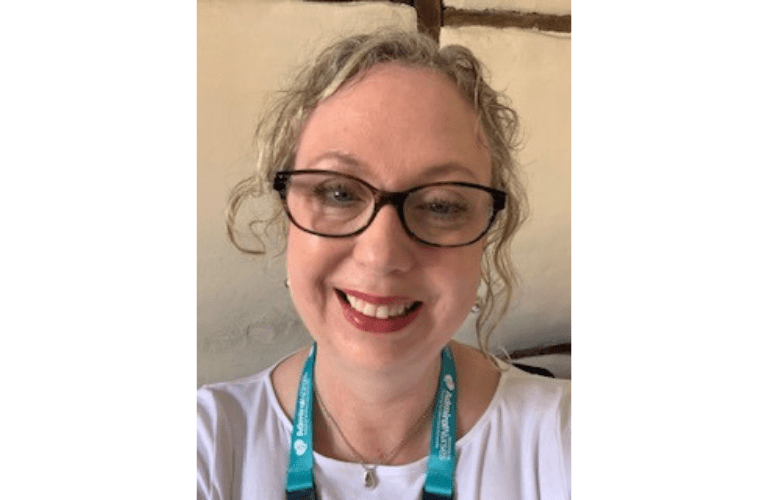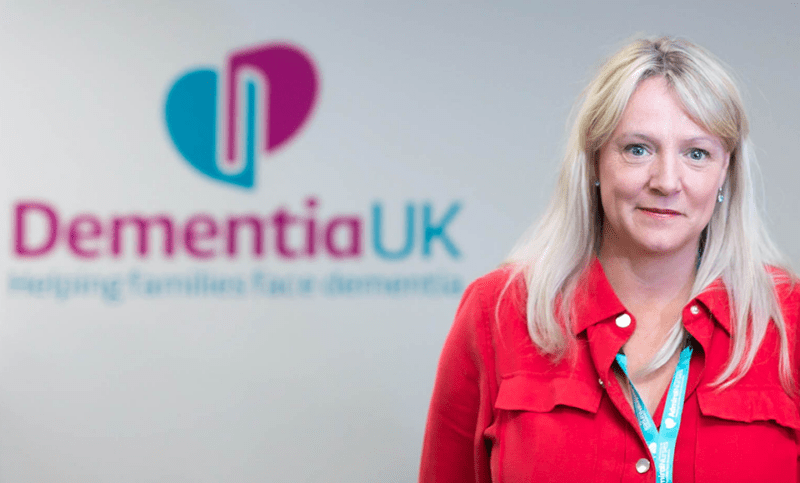
A day in the life of Admiral Nurse Ruby Guild
Ruby talks us through her working day supporting families affected by dementia in local communities.
Sunita Devi – dementia specialist Admiral Nurse supporting families from diverse and under-served communities in the Black Country – reflects on South Asian Heritage month and how she supports families from the South Asian community in her role.
As a South Asian woman, South Asian Heritage Month is very close to my heart. I am a proud British Asian, specifically of the Indian heritage.
I was raised in a very conservative household. Women were not expected to progress in education and instead were responsible for domestic duties. I got married at the age of 16 and had two beautiful children. I’m very fortunate that my husband and sons are incredibly supportive, and I continued to study to achieve my goals of being a mental health nurse.
I’ve conquered many challenges during my career and have played a part in educating and supporting many families from the South Asian community. I am very proud to represent this community in my role.
My role is needed because there is a stigma around dementia in South Asian communities which stops families from seeking support. No one wants to marry into a family where dementia is present. No one comes to visit. South Asian families often feel like they can cope on their own and don’t seek support outside the immediate family.
There is also a real lack of understanding about dementia which makes it very difficult to identify early symptoms. There needs to be more education about dementia so that families feel they can ask for support and have the best possible care along their dementia journey.
It’s important to reach out to the South Asian community and spread awareness in places where they are likely to be. Places of worship, cultural events in the community, schools and GP surgeries are all areas where we can reach people who need support, and my role helps provide an easier pathway for these families. Dementia support can be provided through leaflets, brochures, educational articles in various languages and being able to see an Admiral Nurse in person.
It is an absolute honour to now be the Lead Specialist Admiral Nurse for Diverse and Under-served Communities. I have my own caseload of around 25 families. I support families from diverse and under-served communities in managing the complexities of dementia; helping them take back control when times are tough; and giving them the strength to cope confidently with their caring role. I also offer a compassionate listening ear to all of the families I work with.
With my knowledge and expertise, I can also advise colleagues in my team about how to work best with under-served groups. Colleagues often come to me for my insight regarding working with South Asian families. Some colleagues have even asked me to join them on one of their visits to support and offer advice.
I have supported many South Asian families by offering them reassurance, compassion and strength, and helping them implement positive coping skills around structure and routine. I also refer and signpost families to culturally appropriate support services within the community. Early intervention is key to avoid a crisis, so it is important to also offer resources to improve education and knowledge around dementia.
Supporting families from the South Asian community can often present challenges due to lack of understanding about dementia and barriers to accessing health services. However, it is so rewarding to be able to support these families on their dementia journey, and it is very close to my heart. I truly enjoy working with families and always try my best to make sure I provide the best possible support and care to everyone I work with.

Ruby talks us through her working day supporting families affected by dementia in local communities.

We speak to Admiral Nurse Jules, on why she chose to specialise in young onset dementia and how she supports families.

Helen McDavitt is the Head of Helpline and Clinics at Dementia UK.